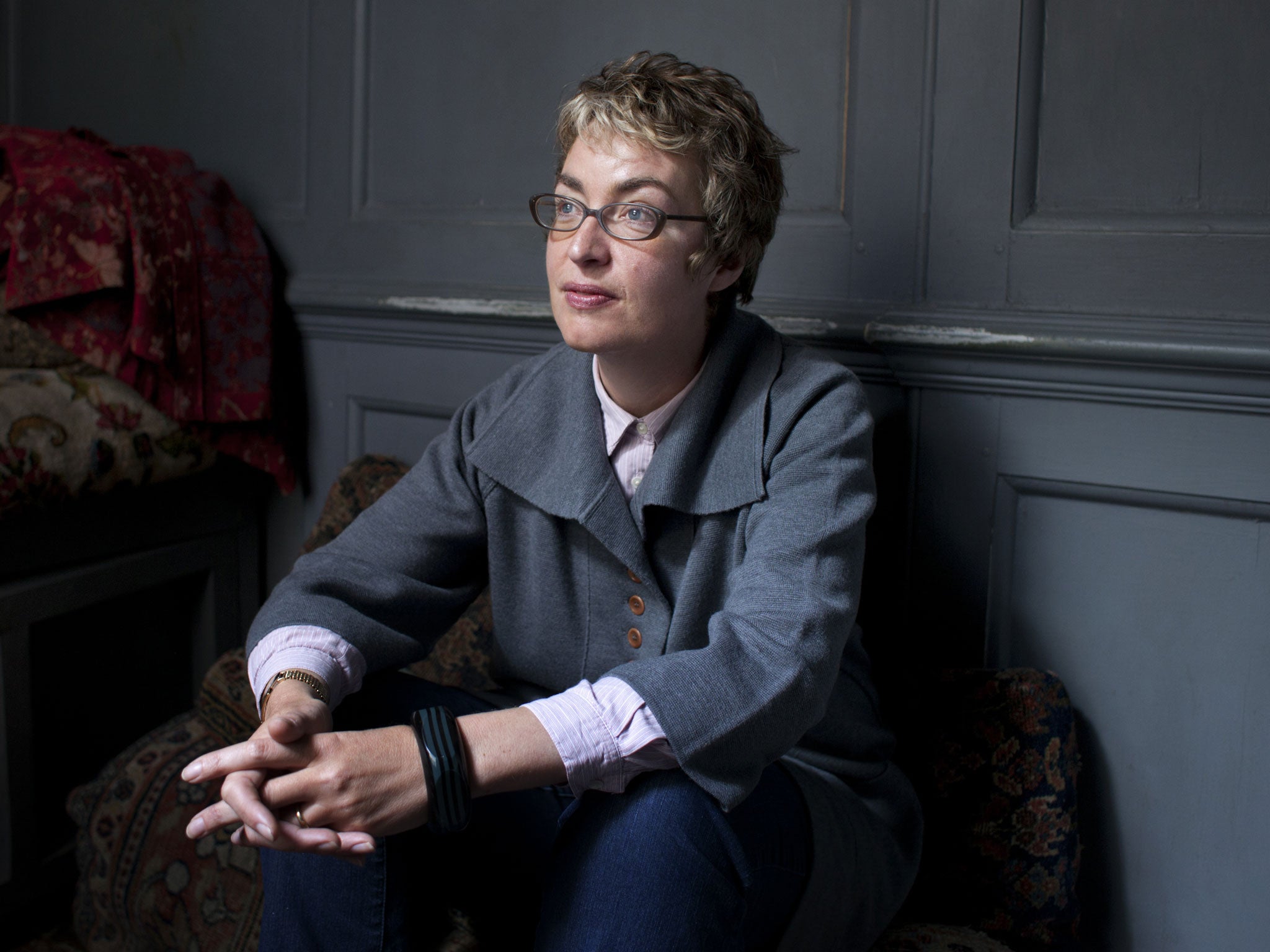There is no witch-hunt against the author Kate Clanchy
The term has been used to describe events since the publication of her memoir – which was criticised for containing racist and ableist stereotyping


Your support helps us to tell the story
From reproductive rights to climate change to Big Tech, The Independent is on the ground when the story is developing. Whether it's investigating the financials of Elon Musk's pro-Trump PAC or producing our latest documentary, 'The A Word', which shines a light on the American women fighting for reproductive rights, we know how important it is to parse out the facts from the messaging.
At such a critical moment in US history, we need reporters on the ground. Your donation allows us to keep sending journalists to speak to both sides of the story.
The Independent is trusted by Americans across the entire political spectrum. And unlike many other quality news outlets, we choose not to lock Americans out of our reporting and analysis with paywalls. We believe quality journalism should be available to everyone, paid for by those who can afford it.
Your support makes all the difference.The term “witch-hunt” has been used by some high-profile speakers and sections of the media to describe recent events involving the writer Kate Clanchy – but it isn’t she, or her defenders, who are being treated as witches in this context.
No: the people who have been singled out and decried in the wake of a racism row centred on Clanchy’s 2019 memoir, Some Kids I Taught and What They Taught Me, are a teacher and Goodreads reviewer, Ceridwen; and three prominent British authors and teachers on structural racism and colonialism: Professor Sunny Singh, Chimene Suleyman and Monisha Rajesh. Most recently, a fourth writer and professor, Sandeep Parmar, has also had her work deconstructed by Clanchy.
In case you are unfamiliar with the furore, which has played out on both social media and in various sections of the media, this is an overview of what happened: Clanchy, a teacher and writer of some repute, wrote a book documenting her work in schools with children of African, Asian, South-Asian and Middle Eastern heritage. Many of her students were refugees and immigrants.
The book was awarded the Orwell Prize in 2020, but since then has been criticised – by well-respected authors, educators and critics of all colours – for containing racist and ableist stereotyping in some of its descriptions of children.
Karl Knights, a disability activist and autistic writer with ADHD and cerebral palsy, tweeted: “So folks, I finished reading Kate Clanchy’s book, Some Kids I Taught and What They Taught Me. I passionately hated this book”; and Singh, Suleyman and Rajesh – three highly-regarded female scholars – soon came to the forefront as vocal critics of the book. They said, between them, that they believed the text to be highly problematic; that the language and perspective had too much in common with that used in imperialist hagiographies utilised by eugenicists.
There was bitter debate on public forums; arguments about Clanchy’s language and also arguments against publicly-shaming a woman – any woman. Clanchy, in fact, denied the accusations outright when they were first posted on Goodreads, saying that “none of the terms” that had been flagged as objectionable were in her book – a claim that later turned out to be wrong, as the terms were found in the text. She has since said she is going to rewrite the memoir.
His Dark Materials author Philip Pullman spoke in defence of Clanchy in a (now-deleted) tweet in which he wrote that those who do not read a book before condemning it would “find a comfortable home in Isis or the Taliban”; though he later tweeted an apology for the harm he caused, admitting that his comment was a “mistake”. Lionel Shriver weighed in with the opinion that authors should “stand up to the language police” and warned that the “cancelling of writers will only spiral if we appease the purity zealots”. This is where the effects of power and privilege, and the responsibility that comes with it, become most clear.
Singh, Suleyman and Rajesh have spoken about the trauma and racist abuse they have suffered since – and they’ve had support with an open letter signed by more than 1,000 figures from the publishing industry.
Clanchy has also spoken about the effects on her: she’s given numerous recent interviews talking about how she “contemplated suicide” after receiving an email from her publisher, saying it was cutting ties with her over the row – though she’s now got a new publisher who will be publishing her backlist, and her original books are still selling.
The difference is that Clanchy has been given ever-widening space to vocalise this and other perceived injustices – I counted 25 articles this week alone. Singh, Suleyman and Rajesh continue to be cited in these pieces, in a manner that is more harmful than good, yet have not been provided with similar recourse to reply. How can we turn a blind eye on their mental state?
And, a question I find myself asking in the midst of this is: if we are unable to use incidents such as this for real change, will we ever evolve as a society?
In my opinion, it all comes back to language. One of the latest pieces I read in defence of Clanchy described the situation as I stated at the beginning of this article: as a witch-hunt. This seems like a huge step backwards; undoing any actual good that may have come since the situation erupted last summer. It doesn’t bring about social justice: it merely recentres the white woman in the narrative and utilises language to garner sympathy.
So let’s be clear here. There is no witch-hunt – Clanchy is no persecuted woman being burned at the stake. She is a UK citizen, with roots and family here, who has done well for herself. A privileged white woman working with children of colour has no business being “naïve”, as she’s been described; or having biases she is unaware of.
And if it is unfortunate that Clanchy lost her first contract with her publisher, she is still an adult professional, in an industry of predominantly white people. For every Clanchy, there are a host of hard-working writers who could never even dream of receiving contracts like those she received in the first place – let alone the opportunity to tell their stories in the national news media.
In addition, there are myriad people in the UK besides Clanchy doing extensive and far-reaching work for the children of immigrants, refugees and asylum seekers who are not capitalising on the privilege of being allowed access to these children.
Naturally, for those of us who value free speech – not least those of us who have migrated from oppressive regimes – suppressing anyone’s voice is not to be viewed lightly. But it needs to be weighed within the context of true social justice, course correction and reparation. We need to ask ourselves when we consider Clanchy’s case: is a member of the oppressed classes being suppressed? The answer is no.
To keep up to speed with all the latest opinions and comment sign up to our free weekly Voices Dispatches newsletter by clicking here
I would say this to those who are alarmed by criticism of Clanchy: nobody is attacking white people for their skin colour or calling all white people’s intentions suspect or racist. I know there are many people – particularly in the aftermath of the Black Lives Matter movement – who are genuinely trying to do better. As a member of the writing community, I myself have been in conversations initiated by publishers and editors, seeking advice and guidance on how they can change. I have been published by white publishers and recognise their allyship, as do many authors of colour.
What is under attack is the type of ideology and language that gives rise to racist abuse and gaslighting. We should unite against it – and call it out where we see examples of it, no matter how “well-intentioned”. Language is a direct reflection of ideology, and that is why criticism of Clanchy’s work has centered on language.
To go some way to combat this, it is now necessary to facilitate conversations with others in our communities; to actively seek out and read books written by voices that have been traditionally suppressed. This means promoting books that have been written by authors who have in fact been through hell and back in order to get these books to us. These books are themselves a form of resistance.
And most importantly, let’s desist from using divisive language just to bolster our own ideologies. Let’s steer clear of the phrase “witch-hunts”. We’re already in enough hot water as it is.
Join our commenting forum
Join thought-provoking conversations, follow other Independent readers and see their replies
Comments